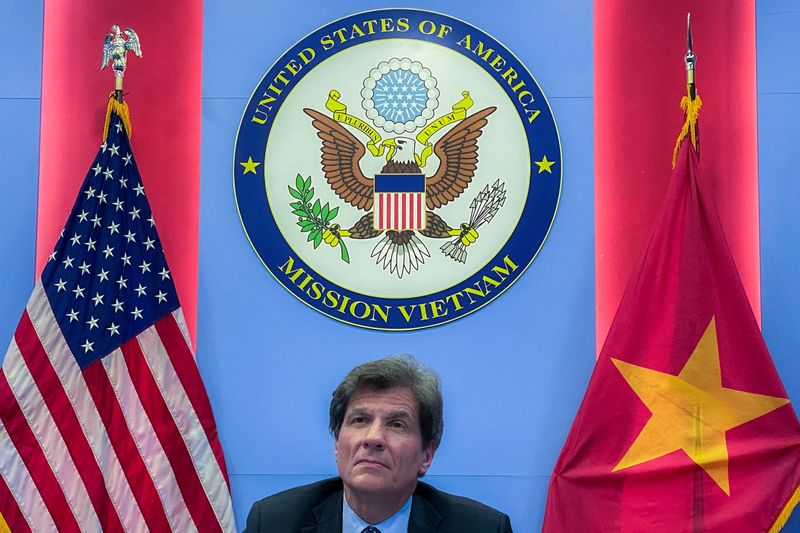US welcomes Vietnam minister for economic talks days after Putin visits Hanoi
2024.06.25 13:56
By Simon Lewis and David Brunnstrom
WASHINGTON (Reuters) – The U.S. welcomed Vietnam’s planning and investment minister on Tuesday for talks on enhancing economic cooperation, and said ties were stronger than ever, days after Hanoi upset Washington by hosting Russian President Vladimir Putin.
The State Department said this week’s dialogue would cover economic security, semiconductors, the investment climate, digital economy, cyberspace, energy, and critical minerals. Last year, Washington upgraded U.S.-Vietnam ties to a “comprehensive strategic partnership”.
Russian President Vladimir Putin’s visit to Vietnam last week drew sharp U.S. criticism. Washington subsequently said it would stay focused on deepening ties with Hanoi as the U.S. works to counter rivalry with China.
The U.S. is to decide by July 26 on whether to elevate Vietnam to market-economy status, which would reduce punitive anti-dumping duties set on Vietnamese imports given its current status as a non-market economy marked by heavy state influence.
“The relationship between Vietnam and the U.S. is as strong, we believe, as it has ever been,” said U.S. Under Secretary for Economic Growth, Energy, and the Environment Jose Fernandez.
He told the opening session that U.S.-Vietnam trade was now worth $124 billion, making Vietnam the U.S.’s ninth largest partner in trade in goods.
Addressing Vietnam’s Minister of Planning and Investment Nguyen Chi Dung, Fernandez said U.S. business were “very excited,” about Vietnam but added:
“We have to keep in mind while investors are bullish on Vietnam, we want to make sure that they have the regulatory and decision-making environment … they require in order to continue their expansion in your country.”
In January, Fernandez said in Vietnam that 15 U.S. companies, including semiconductors firms, had expressed interest in investing $8 billion in Vietnam in clean energy infrastructure, contingent on the country’s progress on renewable energy rules.
Vietnam wants to attract chipmakers and boost its renewable energy sector but has struggled to adopt rules to allow expansion of its solar and onshore wind industry and development of offshore wind farms.
On Monday, the U.S. boosted Vietnam’s ranking on a human trafficking report while citing concerns Hanoi had failed to launch investigations into government officials complicit in trafficking crimes.

Hanoi has warned that maintaining non-market economy status would be very bad for bilateral ties.
U.S. steelmakers, Gulf Coast shrimpers and honey farmers oppose an upgrade, but it is backed by U.S. retailers and some other business groups.







